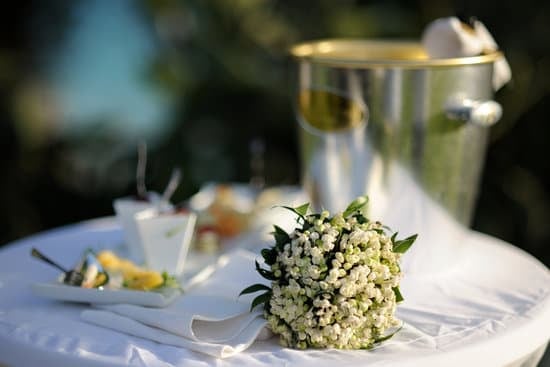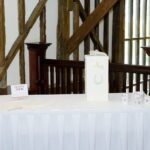When it comes to celebrations filled with vibrant colors, rich cultural traditions, and unbridled joy, Nigerian traditional weddings stand out as truly spectacular events. These ceremonies offer a unique glimpse into the country’s diverse cultures and customs, showcasing the beauty and significance of age-old traditions. From the elaborate attire to the lively music and dance, every aspect of a Nigerian traditional wedding is steeped in meaning and symbolism.
Nigerian traditional weddings hold a special place in the hearts of families and communities across the country. They are not just about the union of two individuals but also serve as a reaffirmation of cultural identity and heritage. Through rituals that have been passed down through generations, these weddings play a crucial role in preserving Nigeria’s rich cultural tapestry.
One of the most striking elements of a Nigerian traditional wedding is the exquisite traditional attire worn by both the bride and groom. The intricate fabrics, vibrant colors, and unique styles reflect not only personal taste but also specific cultural affiliations. From dazzling embellishments to elaborate headpieces, every detail of the attire tells a story and adds to the overall splendor of the occasion.
History and Significance of Nigerian Traditional Weddings
Nigerian traditional weddings have a rich history and hold significant cultural importance in Nigerian society. These ceremonies are not just about the joining of two individuals, but they also serve as a way to honor traditions, values, and beliefs that have been passed down through generations. The roots of Nigerian traditional weddings can be traced back to various ethnic groups in the country, each with its unique customs and practices.
Historical Roots
The history of Nigerian traditional weddings dates back centuries, with different tribes and ethnic groups having their own distinct marriage customs. These customs often reflect the values and traditions of the specific community, showcasing the importance placed on family, respect for elders, and unity among members. From Igbo to Yoruba to Hausa weddings, each ceremony is steeped in tradition and symbolism that has stood the test of time.
Symbolism and Significance
In Nigerian traditional weddings, every aspect of the ceremony carries symbolic significance. From the colors of the attire worn by the bride and groom to the rituals performed during the ceremony, each element is carefully selected to represent important values such as love, unity, fertility, and prosperity.
Traditional weddings in Nigeria are not just about celebrating a union; they are also about honoring ancestors, seeking blessings from elders, and uniting families in a bond that goes beyond just the couple getting married.
Traditional Attire
The Nigerian traditional wedding attire is a vibrant and colorful representation of the country’s rich cultural heritage. The attire varies depending on the ethnic group, with each group having its own unique style and designs. One common feature across all Nigerian traditional weddings is the use of elaborate fabrics such as Aso Oke, Ankara, Lace, and George wrappers. These fabrics are often adorned with intricate embroidery, beading, or embellishments that add to the beauty of the outfit.
Men typically wear a traditional outfit known as Agbada or Babariga, which consists of flowing robes paired with trousers and a cap. Women, on the other hand, dazzle in stunning dresses made from luxurious fabrics like silk or lace, embellished with beads or sequins. The gele (head tie) is an essential accessory for women at Nigerian traditional weddings, adding elegance and sophistication to their overall look.
In recent years, there has been a resurgence in the appreciation for Nigerian traditional attire, both within Nigeria and in the diaspora. Many couples now choose to incorporate elements of traditional attire into their white wedding ceremonies or opt for a full-blown Nigerian traditional wedding celebration. This trend not only showcases the beauty of Nigerian culture but also serves as a way for couples to pay homage to their roots and heritage.
Attending a Nigerian traditional wedding is not just about witnessing a union but also experiencing a display of cultural richness and diversity. From the colorful outfits to the intricate beadwork and embroidery, every detail tells a story of tradition and celebration. It is truly a feast for the eyes that immerses guests in the splendor of Nigerian culture while celebrating love and unity in marriage.
The Role of Family and Community in Nigerian Traditional Weddings
Family and community play a central role in Nigerian traditional weddings, emphasizing the values of unity, support, and celebration. During these weddings, families come together to not only witness the union of the couple but also to show their love and support in a meaningful way. The involvement of family members extends beyond just attending the wedding; they actively participate in various aspects of the ceremony, showcasing the strong bond between relatives.
In Nigerian traditional weddings, the extended family often takes on specific roles and responsibilities to ensure that the event runs smoothly. From planning and organizing different aspects of the wedding to providing emotional support to the couple, family members are deeply involved in every step of the process. For example:
- Parents of the bride and groom may lead certain rituals or ceremonies during the wedding.
- Extended family members may assist with decorations, food preparation, or logistics.
- Siblings and cousins may act as attendants or help with coordinating events throughout the day.
Additionally, community members also play a significant role in Nigerian traditional weddings. These weddings are not just a celebration for immediate family members but also an opportunity for neighbors, friends, and acquaintances to come together. The community shows its support by offering blessings, well-wishes, and even practical assistance to ensure that the wedding is a joyous occasion for everyone involved. The sense of communal belonging is strongly emphasized during Nigerian traditional weddings.
Overall, the involvement of family and community members in Nigerian traditional weddings highlights the importance of shared values, connections, and collective happiness. It showcases how these weddings are not just about two individuals coming together but about uniting families and communities in celebration and love. Through their active participation and support, families and communities contribute to making these weddings truly special and memorable occasions.
Traditional Ceremonies and Rituals
Nigerian traditional weddings are steeped in rich cultural traditions and rituals that have been passed down through generations. These ceremonies are not only a celebration of love but also a display of the deep-rooted customs that define Nigerian heritage. Let’s break down each step of these traditional wedding ceremonies to get a glimpse into the intricate and meaningful practices that make them so unique.
During a Nigerian traditional wedding, there are several key rituals that take place, each symbolizing different aspects of the union between the bride and groom. One important ritual is the payment of the bride price, known as “Igba Nkwu” in some parts of Nigeria.
This custom involves the groom presenting gifts, money, or livestock to the bride’s family as a token of appreciation for their daughter. It is a way to show respect and gratitude for the bride’s upbringing.
Another essential part of a Nigerian traditional wedding is the exchange of vows and blessings from family members. The couple may partake in traditional prayers and blessings conducted by elders or religious leaders, seeking protection, love, and prosperity in their marriage. This solemn moment signifies the beginning of their journey together as husband and wife within the community’s support and guidance.
Furthermore, one of the most vibrant and joyous aspects of Nigerian traditional weddings is the “Kola nut ceremony”. The ritual involves breaking kola nuts – a symbol of hospitality and respect – by both families as a way to pray for good fortune, unity, and blessings upon the couple. It showcases the importance of coming together, sharing food, and fostering relationships between both families involved in the union.
- Gifts exchanged during “Igba Nkwu”
- Exchange of vows and blessings
- Kola nut ceremony
These time-honored traditions add depth and meaning to Nigerian traditional weddings, making them not just an event but an unforgettable experience that showcases the beauty of cultural heritage.
Delicious Nigerian Cuisine at Traditional Weddings
Nigerian traditional weddings are known for their vibrant colors, rich culture, and of course, delicious cuisine. The food served at these weddings is an integral part of the celebration, reflecting the diversity and flavor of Nigerian culinary traditions. From jollof rice to fried plantains, each dish tells a story and adds to the overall experience of the wedding feast.
One popular dish that is almost always present at a Nigerian traditional wedding is “suya,” which is a spicy skewered meat often made with beef or chicken. Suya is grilled over an open flame and seasoned with a blend of spices that give it a smoky and savory flavor. It is a crowd favorite among guests and is sure to be found on the menu at most Nigerian weddings.
Another staple in Nigerian wedding cuisine is “moi moi,” which is a steamed bean pudding made from blended black-eyed peas, peppers, onions, and oil. It has a luscious texture and can be served as a side dish or as part of the main course. Moi moi is not only delicious but also symbolic of prosperity and good fortune in Nigerian culture, making it an important addition to any traditional wedding feast.
| Nigerian Dish | Description |
|---|---|
| Suya | Spicy skewered meat grilled over an open flame with savory spices |
| Moi Moi | Steamed bean pudding made from black-eyed peas, peppers, onions, and oil symbolizing prosperity |
Music and Dance
Traditional Musical Instruments
One of the distinguishing features of Nigerian traditional wedding music is the use of indigenous musical instruments. From talking drums like the “dundun” to string instruments like the “kora,” each instrument has a unique sound that contributes to the overall rhythm and melody of the music. These instruments bring a sense of authenticity and tradition to the wedding ceremony, connecting it to Nigeria’s rich cultural heritage.
Dance Styles
Nigerian traditional weddings are incomplete without energetic and rhythmic dance performances. Different regions in Nigeria have their own distinct dance styles, each reflecting the unique traditions and customs of that particular culture. Whether it’s the graceful movements of Yoruba dancers or the vibrant steps of Igbo dancers, these dances add an element of entertainment and cultural expression to the wedding celebration.
Celebratory Songs
Music plays a significant role in narrating love stories, praising the couple, and expressing well-wishes for their future together during Nigerian traditional weddings. From melodious ballads to upbeat tunes, celebratory songs are sung by talented vocalists or even guests who join in with enthusiasm. These songs create an emotional connection between everyone present at the wedding, making it a memorable experience filled with love, joy, and unity.
Modern Trends in Nigerian Traditional Weddings
In recent years, Nigerian traditional weddings have seen a fusion of traditional customs with modern trends, creating a unique and vibrant celebration. One popular trend is the incorporation of Western influences into the ceremonies, such as having a white wedding dress alongside the traditional Nigerian attire. This blend of cultures showcases the diversity and richness of Nigerian weddings, appealing to both the older generation who value tradition and the younger generation looking for a more contemporary touch.
Another modern trend in Nigerian traditional weddings is the use of social media and technology to enhance the overall experience. Couples often create personalized hashtags for their wedding day, allowing guests to easily share photos and videos online. Additionally, live streaming ceremonies for loved ones who are unable to attend in person has become increasingly popular, connecting people from all over the world to witness and celebrate this joyous occasion.
Furthermore, sustainability and eco-consciousness have started to play a significant role in Nigerian traditional weddings. More couples are opting for environmentally friendly practices such as using biodegradable decorations, supporting local artisans for their attire and accessories, and choosing eco-friendly catering options. This shift towards sustainable weddings reflects a growing awareness of environmental issues within the community and a desire to minimize the carbon footprint of these grand celebrations.
| Trend | Description |
|---|---|
| Blend of Cultures | Combining Western influences with traditional customs |
| Social Media Integration | Creating personalized hashtags and live streaming ceremonies |
| Sustainability Practices | Choosing eco-friendly options for decorations, attire, and catering |
Tips for Attending or Planning a Nigerian Traditional Wedding
Nigerian traditional weddings are rich in culture, vibrant colors, and meaningful traditions that make them a truly unique and special occasion. Whether you are attending or planning a Nigerian traditional wedding, there are certain tips and guidelines to keep in mind to ensure you fully immerse yourself in the beauty of this celebration.
First and foremost, it is important to understand the significance of the different rituals and ceremonies that take place during a Nigerian traditional wedding. From the traditional engagement ceremony known as “Introduction” to the exchange of gifts between families and the tying of the nuptial knots, each step holds deep cultural meaning and symbolism. By familiarizing yourself with these customs, you can better appreciate the sacredness of the union being celebrated.
When it comes to attire for a Nigerian traditional wedding, guests are expected to dress in colorful and stylish outfits that reflect the cultural heritage of Nigeria. Women often wear elegant geles (head wraps) and iros (wrappers) made from luxurious fabrics like aso oke or ankara, while men don agbadas or babariga paired with fila hats.
Embracing traditional Nigerian fashion not only demonstrates respect for the customs but also adds to the festive atmosphere of the event. Remember to dress modestly as well, as conservative attire is generally preferred in Nigerian culture.
Real-Life Examples
Nigerian traditional weddings are not just ceremonies; they are vibrant celebrations of love, culture, and community. These beautiful unions bring together families, friends, and loved ones to witness the joining of two individuals in a sacred and joyous occasion. From the elaborate traditional attire to the delicious cuisine and lively music, every aspect of a Nigerian traditional wedding is carefully planned and executed to create an unforgettable experience.
One of the most remarkable aspects of Nigerian traditional weddings is the intricate rituals and ceremonies that take place throughout the event. From the traditional marriage proposal to the exchange of gifts between families, each step in the process symbolizes unity, respect, and commitment. Witnessing these rituals firsthand is a true privilege that allows outsiders to gain insight into the rich cultural heritage of Nigeria.
In conclusion, Nigerian traditional weddings are more than just events; they are expressions of love, tradition, and community spirit. The stories shared by those who have experienced these weddings firsthand serve as testaments to the enduring beauty and significance of this age-old tradition. Whether you are attending or planning a Nigerian traditional wedding, embracing every moment with an open heart and mind will undoubtedly leave you with memories that will last a lifetime.
Frequently Asked Questions
What Happens in a Nigerian Traditional Wedding?
A Nigerian traditional wedding is a vibrant and culturally rich ceremony that typically involves various rituals, customs, and traditions specific to different ethnic groups in the country. It is a celebration that showcases the beauty of Nigerian heritage through attire, music, dancing, and food.
What Is the Traditional Marriage in Nigeria?
Traditional marriage in Nigeria involves the coming together of two families to unite a man and a woman in matrimony. The process includes formal introductions, negotiations of bride price or dowry, traditional ceremonies, exchange of gifts, and blessings from family members. It holds immense significance in Nigerian culture.
Who Pays for Nigerian Traditional Wedding?
In Nigerian traditional weddings, the issue of who pays for the wedding can vary depending on the customs of different ethnic groups. Traditionally, the groom’s family bears the cost of certain expenses such as the bride price or dowry payment to the bride’s family.
However, both families usually contribute to other aspects of the wedding like attire, food, decorations, and ceremonies to share in the financial responsibilities.

I have been involved in marriages for over 20 years helping couples and singles understand more about them.





